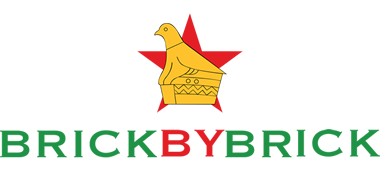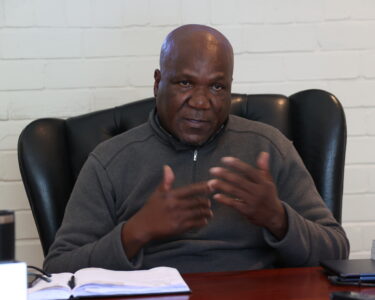Villagers in Jinjika Village, Mangwe District, never thought that one day they would open bank accounts to keep their money safe. They lived in thick forests and it seemed like the government had forgotten about them. However, as our Editor-in-Chief, Munyaradzi Huni, reports, the thick forests have been turned into lush gardens that are providing the villagers with highly nutritious food.
I n August 2021, Jinjika Village in Mangwe District, a remote rural area tucked deep in semi-arid Matabeleland South Province, comprised a few houses buried deep in thick forests. This village was seen as one of the most neglected and marginalised areas in the province. The majority of the families lived in abject poverty and were resigned to their fate. Life can be that cruel at times! However, in September 2021, the government decided to show in practical terms what President Mnangagwa means when he says the Second Republic is “leaving no one and no place behind” in terms of development. Ministry of Lands, Agriculture, Fisheries, Water and Rural Resettlement officials descended on Jinjika Village, mobilised villagers from surrounding communities to clear land for the establishment of the Sekusile-Makorokoro Nutrition Garden under the Presidential Rural Horticulture Scheme. By December 2021, when President Mnangagwa came to commission this nutrition garden, the thick forests had given way to a flourishing garden producing nutritionally rick crops. Jinjika Village’s transformation was quite a sight to behold. The Mangwe District Agritex extension officer, Stanley Nduchu, told the amazing story of how they turned a thicket into a flourishing nutrition garden that is now the pride of about 150 smallholder farmers from the hinterland. “Altogether, about 150 farmers – drawn from Jinjika, Makorokoro, Matobo and Mkoloko villages – work on this project. The farmers comprise both the young and adults. We encourage them to feed themselves and their families first because that is the main reason why we established this garden. We want farmers who are healthy first and foremost. Anything over and above their immediate family needs is destined for the market. We grow tomatoes, cabbages, beetroot, carrots, butternuts and onions. We also have fish ponds. “We chose this place because of its central location. The villagers are very happy with this project because it has completely changed their lives. The villagers enjoy spending their time here. Some actually report for work even on their days off. Quite a number of them are beginning to put on weight because the emphasis is on home consumption as opposed to selling produce for the sake of profit. Some are in the process of setting up nutrition gardens at their homesteads. The excitement is palpable as no one wants to be left behind. “We have set up a committee to supervise the project’s day-to-day operations. But it’s a mere formality because the members are self-motivated. They do not need any supervision,” said an elated Nduchu, adding: “When the project was launched by President Mnangagwa, the villagers could not believe it. They never thought the President would travel all the way to Jinjika Village to launch this project. We all thought the President would delegate the duty to the Minister of Agriculture, Dr Anxious Masuka, because the minister is now like one of us here. He is very passionate about this project and visits us regularly to check on its progress.
“And so when the President showed up in person, the farmers realised that indeed the President means it when he says the Second Republic will leave no one and no place behind in terms of development. The villagers sang and danced. It was such a memorable day. Up to now we still talk about that day as we work in the garden. “We want to thank President Mnangagwa for showing us his love. Indeed, he is a listening President. We had never seen a Head of State here. We want the President to keep supporting us because it is our desire to replicate this garden in other districts. “We also plan to start a beekeeping project here in future. If all goes according to plan, our ambition is to turn this garden into a vocational centre. We are thinking this big because of the overwhelming response from the people here. The current 150 registered members are just the tip of an iceberg. Many more want to join us upon realising that the government means well. “Before we established this project, this area was a bush. A thick bush actually but now it’s the source of our livelihoods. We cleared the land under the leadership of Mr MK who camped here for weeks. It was hard work, but it was worth it because we were determined to see the project up and running.
“Now when some people drive through here, they stop their cars to see what is going on. Some take notes and are replicating this project at their homes,” said Nduchu. However, it has not been entirely plain sailing. “We only have one borehole,” laments Nduchu. “A second one has been drilled, but it is not yet operational. We are appealing to the Ministry of Agriculture to address our plight soon because with two boreholes, we will do wonders.” Thanks to the Presidential Rural Development Programme (PRDP), the Second Republic is on a growth trajectory by transforming rural communities through the sustainable exploitation of the country’s bountiful resources such as land, water and minerals. Launching the programme in 2021, President Mnangagwa said: “The Presidential Rural Development Programme is thus part of an array of my government’s efforts to turn around the economic fortunes of our rural communities. It will enable communities to play a more active part in the ongoing, irreversible economic development agenda. “Our mantra that ‘nyika inovakwa nevene vayo’ must continue to inspire villages, rural townships, social institutions, growth points and wards to develop their localities brick by brick, stone upon stone. “The Presidential Rural Development Programme recognises that lifting many into prosperity goes hand in-hand with strategies that drive economic growth, reduce inequality while improving the health, education and well-being of our people.” The PRDP is in line with the benchmarks outlined in the Agriculture and Food System Transformation Strategy (2020-2025) whose national thrust is to see Zimbabwe achieving a US$8.2 billion agriculture economy by 2025. It is also expected to create no less than one million jobs within the next couple of years as well as spur economic growth in previously marginalised rural areas. But that is not all. The programme is underpinned by growing the economy and ensuring Zimbabwe regains its breadbasket status and help the majority of rural families move from poverty to affluence. The long-term goal is to transform horticulture through increased access to potable drinking water to 10 million people living in rural areas, which translates to 70 percent of the country’s population. In line with its ongoing restructuring exercise, the Ministry of Lands,
Agriculture, Fisheries, Water and Rural Resettlement has since created provincial agriculture and rural development services director posts to spearhead the rural projects. Under the programme, government will drill and equip one borehole in each of the country’s 35,000 villages. Each village will also be empowered with a nutrition garden. Government will also drill 9,600 boreholes for schools while each ward will receive two boreholes for youths interested in horticulture projects. Nutrition gardens across Zimbabwe have changed the lives of many villagers and are now being used as case studies by reputable international journals. In an article titled “Nutrition Gardens: A Sustainable Model for Food Security and Diversity” published in the Observer Research Foundation on 16 June 2020, Shoba Sur wrote: “A case study from Zimbabwe found that nutrition gardens have a positive impact on livelihoods as they provide steady incomes and curb diet-related diseases. Kitchen gardens provide cheap vegetables thereby reducing the daily food cost and also protect the environment. Fruits and vegetables grown in home gardens play an important role in filling the gap in nutritional needs by providing access to food that is harvested, prepared and consumed by family members.” Research shows that community gardening has long since been recognised as a means to enhance food security and improve nutrition in general and is thus an additional food source for times in the year when field crops are not grown. The Jinjika Village committee secretary, Fikile Khumalo, outlined some of the benefits ushered in by the nutrition garden. “Besides being a source of nutrients and money, this garden has united us as women. (Of the 150 registered members, 24 are women). Before, we came together on this project we hardly talked to each other, but now we are one big family. We do almost everything together. The icing on the cake is that we are now in a position to exchange ideas and views on a variety of topics. “We are now able to feed our families, send our children to school as well as earn a reasonable profit after selling the excess produce. I am happy that my husband is very supportive of this venture because I can now buy basic commodities such as salt, sugar, flour, rice, etc, without having to beg him for loose change. We have been economically empowered by the Second Republic and it really feels good. Now, most of us [women members] have our own bank accounts independent of our husbands. All we need now is a laptop to keep an accurate record of our activities here. “I want to thank President Mnangagwa for setting up this project. Our lives will never be the same again. I personally want to say a big thank you to the President because I now have running water at my homestead as well as flush toilet, much to the delight of my children. What more can I ask for? Getting water from a tap, right in the middle of a remote rural area that used to be scrubland. I can’t thank the President enough,” said Khumalo with an infectious smile lighting up her face. With remote villages in Matabeleland South setting the pace, Zimbabwe will soon become one of the biggest horticulture exporting nations in Africa. Jinjika Village has already taken the lead, and given the energy and enthusiasm of the stakeholders, there is no going back!



